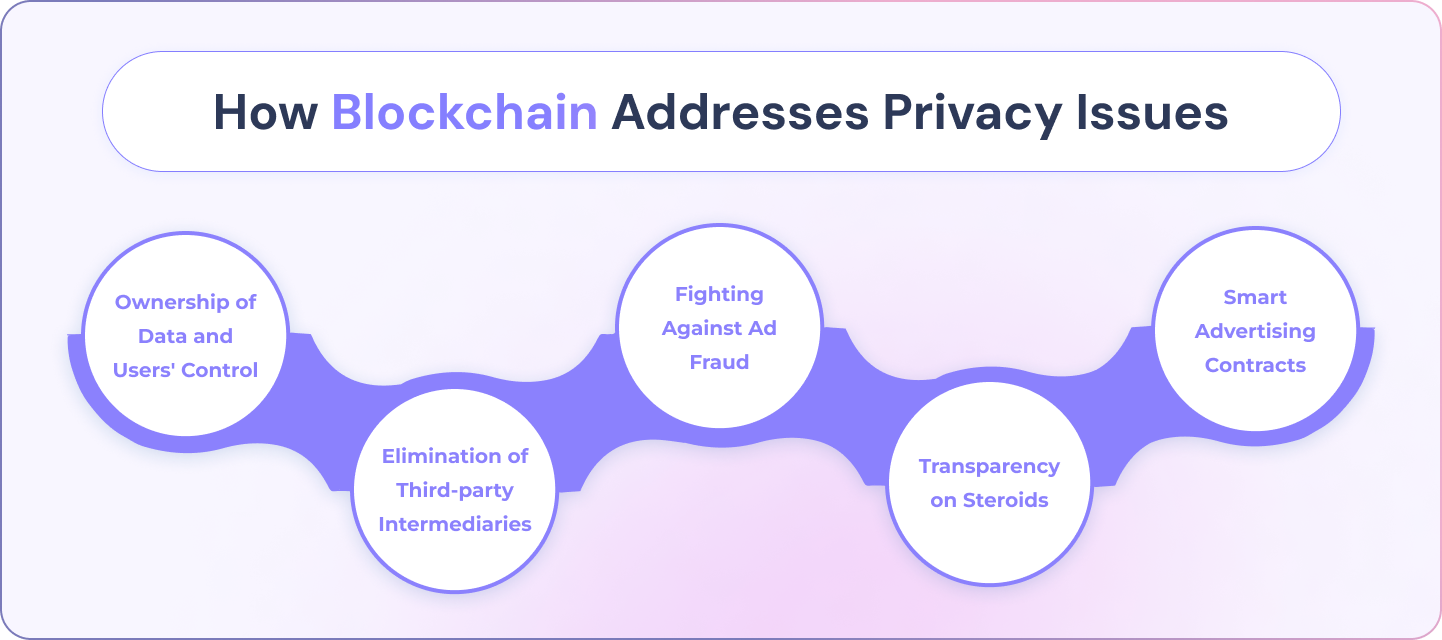The Role of Blockchain in Privacy-First Digital Marketing
In an era where digital marketing dominates the business landscape, data privacy has emerged as a critical concern for both businesses and consumers. The exponential growth of technology has led to vast amounts of personal data being shared online without proper consent. Digital marketing firms and companies are increasingly cornered into privacy-first strategies not only to ensure compliance with regulations but also to build trust among their customers. Blockchain technology is slowly revolutionizing the area with innovative solutions on transparency, data security, and control into the user’s hands.
Understanding Blockchain and Its Relevance to Digital Marketing
Blockchain: it is a decentralized and immutable ledger technology recording transactions across a network of computers. Each transaction is recorded in a “block” and linked together to form a “chain.” In this way, data is secure, transparent, and tamper-proof. Blockchain was once famous only as the underlying structure for cryptocurrencies such as Bitcoin; however, its applications are found to be beyond finance, particularly in health-care, supply chain management, and even digital marketing.
For a digital marketing company or agency, blockchain can be a game-changer in data collection, storage, and use. Marketing can hence guarantee higher transparency, security of consumer data, and trust-driven campaigns when blockchain is integrated into the workflows.
Traditional Digital Marketing Challenges
Data Privacy Issues
Typically, traditional digital marketing relies upon third-party cookies, trackers, and platforms for collecting user data. This often results in breaches of user privacy, as users are unaware of or never gave consent for how their data is being utilized.
Ad Fraud
Ad fraud is an everyday problem that digital advertising continues to face, with businesses losing some billion dollars every year. Such fraudulent activities include fake clicks from bots, false impressions, and the skewing of metrics wasteful of marketing budgets.
Lack of Transparency
Most consumers do not know how their data is used or with whom it is shared with third-party beneficiaries. This lack of transparency destroys trust within digital marketing practices.
Compliance Issues
Requirements by GDPR and CCPA place severe conditions on data protection and force strict compliance, which is a significant challenge for digital marketing agencies and companies.
How Blockchain Addresses Privacy Issues
Blockchain provides unique benefits that fit the purpose of privacy-centric digital marketing.

Blockchain provides unique benefits that fit the purpose of privacy-centric digital marketing.
1. Ownership of Data and Users’ Control
Blockchain allows users to exert full control over their data. User information would no longer rely on a central platform but, instead, could be entered and stored on a decentralized ledger and accessed only with user consent.
For example, a digital marketing agency may utilize blockchain-based systems to request permission from users to access their data. This transparency encourages trust and adherence to the prescribed laws for data protection.
2. Elimination of Third-party Intermediaries
The problem of third-party intermediaries in data transaction is eliminated by blockchain. User-direct interaction with advertisers reduces the chances of data breaches and ensures adequate reward for the users’ information.
3. Fighting Against Ad Fraud
A blockchain can record each transaction and interaction in an advertising campaign on an immutable ledger, ensuring traceable genuineness in ad impressions and clicks.
For instance, a digital marketing firm can track ad engagement authenticity, ensuring that the clients’ budgets are spent effectively.
4. Transparency on Steroids
Blockchain technology can track advertising campaigns in real-time, giving all parties a clear view of the performance metric. This transparency will build trust among advertisers, agencies, and consumers.
5. Smart Advertising Contracts
Smart contracts are those self-executing contracts with the terms of the agreement directly written into code. Through digital marketing, smart contracts can help in the automation of payments, ensure compliance, and verify ad delivery.
For example, a digital marketing agency may use smart contracts to ensure that advertisers are only billed for actual clicks or impressions, reducing the chances of disputes and ensuring fairness.
Real-World Applications of Blockchain in Digital Marketing
1. Brave Browser and Basic Attention Token (BAT)
A blockchain-powered Brave browser presents users with a privacy-first browsing experience. The browser is designed to block third-party ads and trackers, while at the same time allowing users to earn Basic Attention Tokens (BAT) if they agree to view ads.
It helps all concerned parties: the end-user will be paid for attention; advertisers will then reach real audiences, and middlemen will be eradicated.
2. Decentralized Identity Systems
Blockchain can create decentralized identity systems where the users themselves are in control. Digital marketing companies could capitalize on such systems to have verified high-quality data directly from the respective users, while maintaining privacy and accuracy.
3. Programmatic Advertising
Blockchain can make programmatic advertising more transparent by recording all transactions on a distributed ledger. This ensures that advertisers know exactly where their money is going and eliminates fraudulent activities.
Benefits for Digital Marketing Agencies and Companies
1. Increased Trust and Brand Reputation
Digital marketing agencies will be able to prove their regard for privacy and openness in their use of blockchain, thereby increasing their reputation and attracting privacy-conscious clients.
2. Compliance with Regulations
Blockchain simplifies the regulations often involved with GDPR and CCPA by creating clear records of user consent and data usage.
3. Cost Efficiency
Blocking intermediaries and limiting ad fraud can significantly reduce costs, hence enabling the efficient and profitable management of campaigns.
4. Enhanced ROI
Since data is available correctly, and fraud is reduced, marketing campaigns are more targeted and effective, thereby maximizing return on investment (ROI).
Limitations of Blockchain in Digital Marketing
Despite the promise of blockchain technology in digital marketing, it poses its own challenges:
Scalability Problems
Blockchain networks are slow and expensive for transactions like impressions of advertisements and clicks with high volume.
Complexity in Integration
In simpler terms, blockchain systems are highly technical in nature, requiring good technical knowledge and resources to integrate in a system.
User Adoption
Widespread user, advertiser, and agency adoption will determine the success of blockchain-based systems. Educating relevant stakeholders about the benefits of blockchain is key.
Regulatory Uncertainty
Blockchain is an operationally rather unregulated space, which creates uncertainty for businesses considering adopting blockchain technology into their systems.
Future of Blockchain in Digital Marketing
As the digital marketing landscape continues to evolve, blockchain is poised to play an increasingly significant role. With advancements in scalability and user-friendly applications, blockchain adoption will likely grow among digital marketing companies and agencies.
In the future, we can expect:
Decentralized Ad Platforms: Platforms that connect advertisers directly with users, eliminating intermediaries and prioritizing privacy.
Tokenized Advertising Models: Users earning tokens for viewing ads, creating a fair and transparent ecosystem.
Universal Data Portability: Users have control and share their data effortlessly across platforms.
Conclusion
Blockchain is the harbinger in transforming the digital marketing land by addressing critical challenges that depend upon issues regarding data privacy, transparency, and trust. Blockchain can be a must-fitting strategy not just an opportunity for most companies working in the digital marketing and companies operating in todays privacy-conscious world.
By integrating blockchain into their strategies, digital marketing agencies can ensure compliance with the regulations, enhance consumer trust, and develop more efficient and effective campaigns. The potential benefits of blockchain far outweigh the hurdles, making it a game-changer for the industry.
The more consumers are aware of their data rights, the more businesses will differentiate themselves as privacy- and transparency-driven organizations. Blockchain is the base upon which digital marketing could be both effective and ethical and focused on privacy.
TABLE OF CONTENT
- The Role of Blockchain in Privacy-First Digital Marketing
- Understanding Blockchain and Its Relevance to Digital Marketing
- Traditional Digital Marketing Challenges
- How Blockchain Addresses Privacy Issues
- Real-World Applications of Blockchain in Digital Marketing
- Benefits for Digital Marketing Agencies and Companies
- Limitations of Blockchain in Digital Marketing
- Future of Blockchain in Digital Marketing
- Conclusion
